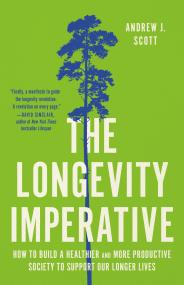By clicking “Accept,” you agree to the use of cookies and similar technologies on your device as set forth in our Cookie Policy and our Privacy Policy. Please note that certain cookies are essential for this website to function properly and do not require user consent to be deployed.
The Right Way to Lose a War
America in an Age of Unwinnable Conflicts
Contributors
Formats and Prices
Price
$13.99Price
$17.99 CADFormat
Format:
- ebook $13.99 $17.99 CAD
- Hardcover $28.00 $31.00 CAD
- Audiobook Download (Unabridged)
Also available from:
Why has America stopped winning wars?
For nearly a century, up until the end of World War II in 1945, America enjoyed a Golden Age of decisive military triumphs. And then suddenly, we stopped winning wars. The decades since have been a Dark Age of failures and stalemates-in Korea, Vietnam, Iraq, and Afghanistan-exposing our inability to change course after battlefield setbacks.
In this provocative book, award-winning scholar Dominic Tierney reveals how the United States has struggled to adapt to the new era of intractable guerrilla conflicts. As a result, most major American wars have turned into military fiascos. And when battlefield disaster strikes, Washington is unable to disengage from the quagmire, with grave consequences for thousands of U.S. troops and our allies.
But there is a better way. Drawing on interviews with dozens of top generals and policymakers, Tierney shows how we can use three key steps-surge, talk, and leave-to stem the tide of losses and withdraw from unsuccessful campaigns without compromising our core values and interests.
Weaving together compelling stories of military catastrophe and heroism, this is an unprecedented, timely, and essential guidebook for our new era of unwinnable conflicts. The Right Way to Lose a War illuminates not only how Washington can handle the toughest crisis of all-battlefield failure-but also how America can once again return to the path of victory.
For nearly a century, up until the end of World War II in 1945, America enjoyed a Golden Age of decisive military triumphs. And then suddenly, we stopped winning wars. The decades since have been a Dark Age of failures and stalemates-in Korea, Vietnam, Iraq, and Afghanistan-exposing our inability to change course after battlefield setbacks.
In this provocative book, award-winning scholar Dominic Tierney reveals how the United States has struggled to adapt to the new era of intractable guerrilla conflicts. As a result, most major American wars have turned into military fiascos. And when battlefield disaster strikes, Washington is unable to disengage from the quagmire, with grave consequences for thousands of U.S. troops and our allies.
But there is a better way. Drawing on interviews with dozens of top generals and policymakers, Tierney shows how we can use three key steps-surge, talk, and leave-to stem the tide of losses and withdraw from unsuccessful campaigns without compromising our core values and interests.
Weaving together compelling stories of military catastrophe and heroism, this is an unprecedented, timely, and essential guidebook for our new era of unwinnable conflicts. The Right Way to Lose a War illuminates not only how Washington can handle the toughest crisis of all-battlefield failure-but also how America can once again return to the path of victory.
-
"Tierney proposes a strategy centered on the tactic of "surge, talk, and leave," which requires a seismic shift in understanding the metrics of waging war.... Tierney's sensible and clearsighted recommendations come from careful study."Publishers Weekly
-
"Tierney doesn't just analyze, although there are plenty of examples drawn from ancient and modern history. Instead, he offers a cogent argument and concrete strategies for minimizing loss of life.... His useful book's coda offers some interesting long-term strategies to avoid endless war in the future."Kirkus
- On Sale
- Jun 2, 2015
- Page Count
- 400 pages
- Publisher
- Little, Brown and Company
- ISBN-13
- 9780316254878
Newsletter Signup
By clicking ‘Sign Up,’ I acknowledge that I have read and agree to Hachette Book Group’s Privacy Policy and Terms of Use







